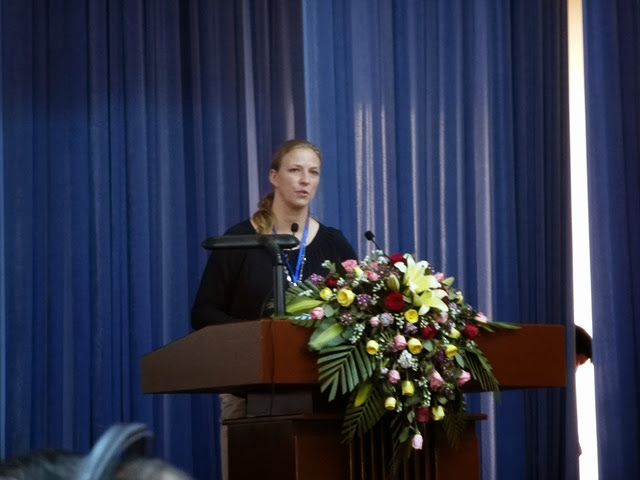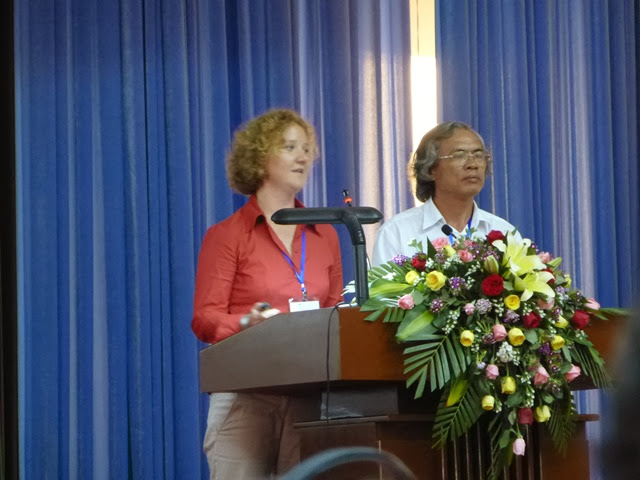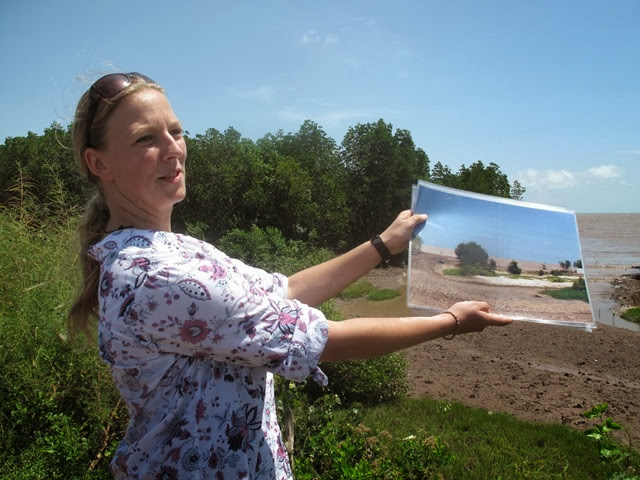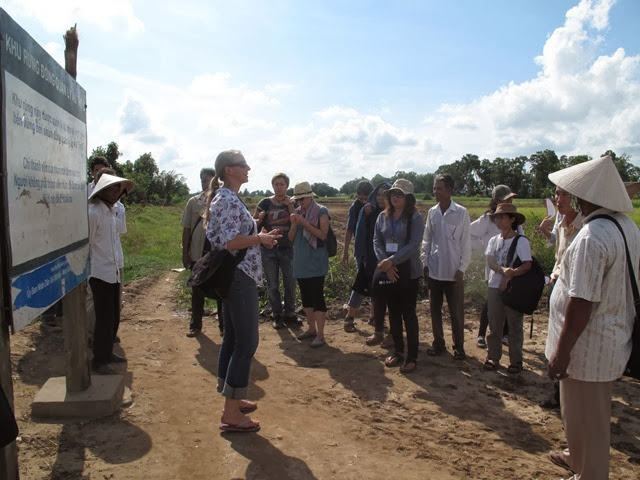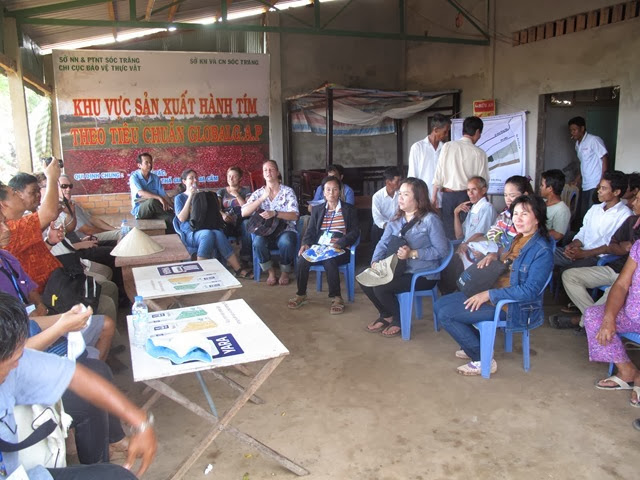Date: 25.10.2013
Venue: Meeting room of Sub-DECAFIREF
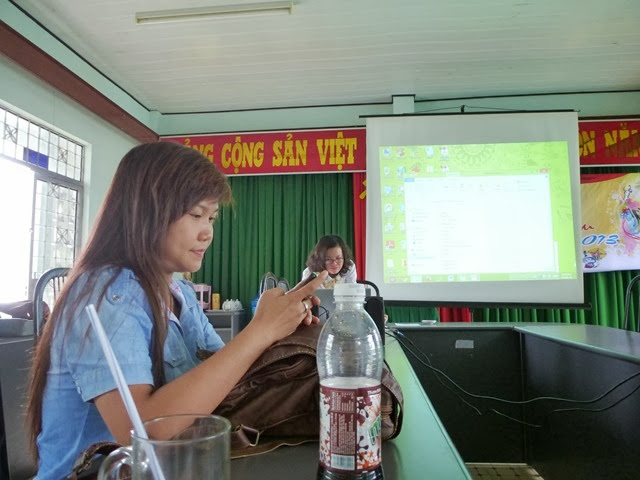
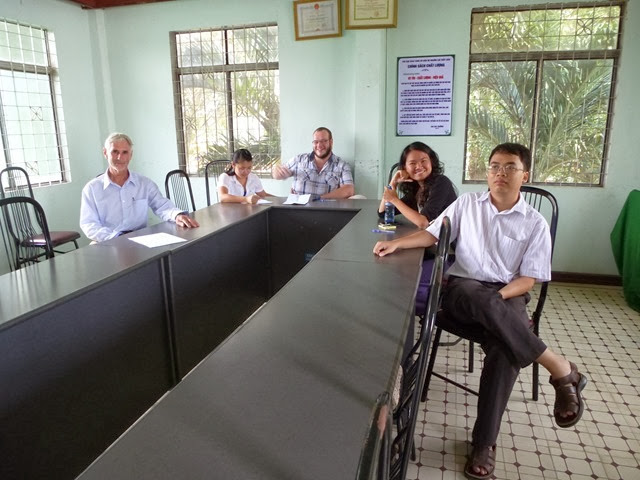



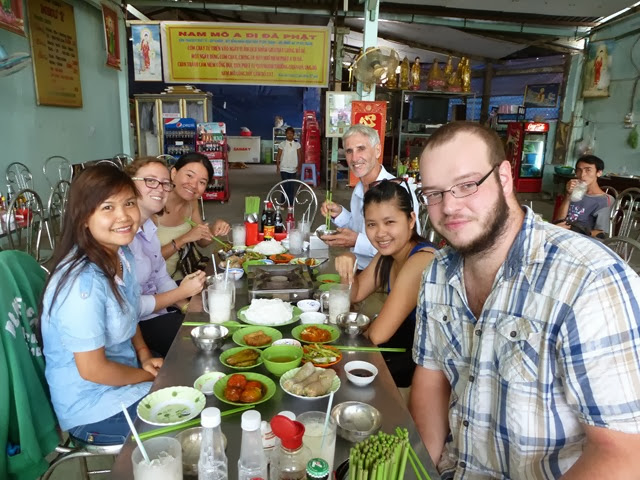
About 200 delegates from local communities, government agencies, academics, NGOs and media from Cambodia, Thailand and Viet Nam came together at the Second Annual Coastal Forum from 15-18 October in Soc Trang Province, Viet Nam, to share experiences, lessons learned and good practices for climate change adaptation in the coastal zone, highlighting nature-based solutions.
The event was organised by IUCN, the Vietnam Administration for Seas and Islands (VASI), German Development Cooperation (GIZ), the Sustainable Development Foundation (SDF) and Soc Trang Provincial Peoples' Committee. The Forum is an activity of the project "Building Resilience to Climate Change Impacts in Coastal Southeast Asia", funded by the European Union, which aims to increase adaptive capacity of people and the ecosystems on which they depend to cope with the anticipated impacts of climate change and plan for DRR, through sound governance and planning.
“The Ministry of Natural Resources and Environment of Viet Nam collaborates closely with IUCN in this project. We realize the importance of this project, which is contributing to climate change adaptation of the communities in three countries”, says Dr Vu Sy Tuan, Vice-Administrator of Vietnam of Seas and Islands, Ministry of Natural Resources and Environment. “It is also a great platform to share information, lessons learned and policy advocacy”.After two years of implementation in eight coastal provinces of Thailand (Chanthaburi and Trat), Cambodia (Koh Kong and Kampot), and Viet Nam (Soc Trang, Can Gio, Kien Giang and Ben Tre) more than 30 pilot project activities, specifically tailored to the unique characteristics of each site have been designed and are being implemented to enhance the adaptive capacity of people and the ecosystems on which they depend to cope with the anticipated impacts of climate change and plan for disaster risk reduction.“Soc Trang and other coastal provinces in Viet Nam have been facing many difficulties on applying new knowledge and experience and lack the funding to do so. Therefore, this Coastal Forum is a great opportunity for Soc Trang Province to discuss with international organizations, scientists, national and international management leaders to share knowledge and experience on climate change adaptation issues”, says Mr Le Thanh Tri, Vice-Chair of Soc Trang Provincial People’s Committee.In Thailand, the initiatives include for instance, mangrove restoration and management, erosion management, coastal spatial planning, community rights on natural resources management, livelihood diversification, and awareness raising which involves the youth. A good example like less intensive shrimp farming which helps to conserve mangrove forest is a sustainable and ecologically friendly practice which can be implemented in other areas as well.For Cambodia, while Koh Kong is home to one of the biggest mangrove forests in Southeast Asia, Kampot also embraces the largest seagrass bed in the region. These ecosystems greatly contribute to livelihoods and safety from extreme weather events of local people living in these areas. However, challenges like infrastructure development, sand mining, and hydropower development in the watershed areas are significant issues of concern to people's livelihood security and safety. In response the project is working together with provincial authorities in both provinces to develop appropriate spatial planning, including coastal zoning and management plans.Recently, ten pilot projects in four selected provinces were launched in Viet Nam to build community resilience to climate change impacts. Together with Mangroves for the Future, approximately $350,000 is being invested into these projects. The scope of work includes mangrove reforestation, awareness raising, clean water and environmental sanitation, eco-tourism development for poor mangrove dependent communities, and changes to fishery, agriculture and aquaculture practices.“These coastal communities in three neighbouring countries are facing similar climate-induced destinies. The reality is they all have to find ways to adapt to live in this changing climate”, says Dr Robert Mather, Head of IUCN Southeast Asia. “While ‘hard’ engineering and infrastructure projects certainly have a role to play in reilience-building, these pilot projects demonstrate that development based on bottom-up planning and 'soft" solutions provided by natural ecosystems are instrumental in bringing about desired solutions for coastal communities in adapting to climate change”.
After two days of sharing experiences with the help of presentations and discussions, the delegates went on a field trip to different sites in Cu Lao Dung, Vinh Chau, Tran De (Soc Trang province) or Bac Lieu province to see firsthand good examples of coastal protection, mangrove rehabilitation and management, alternative livelihood models etc. GIZ Soc Trang and Bac Lieu cooperate closely with the IUCN programme and hosted some of the field visits too. Delegates had the chance to inspect the bamboo T-fences for erosion control and flood plain management, visit silvo-aquaculture models and talk to local people who are taking action in mangrove co-management.

